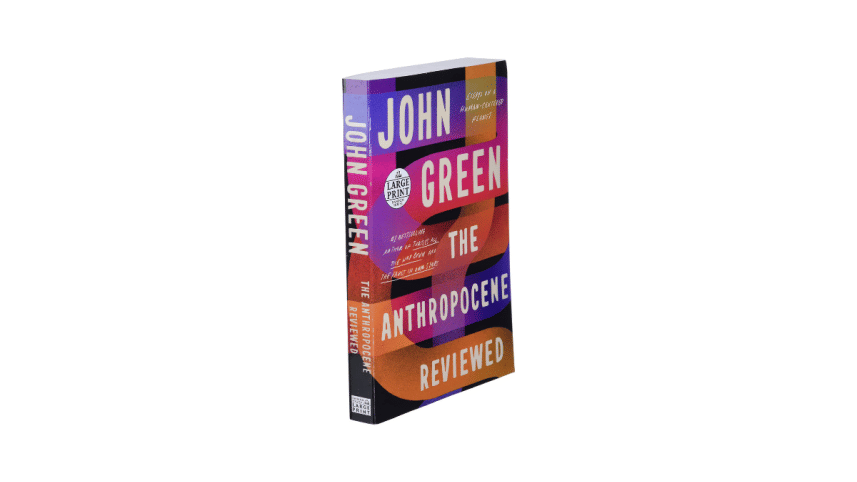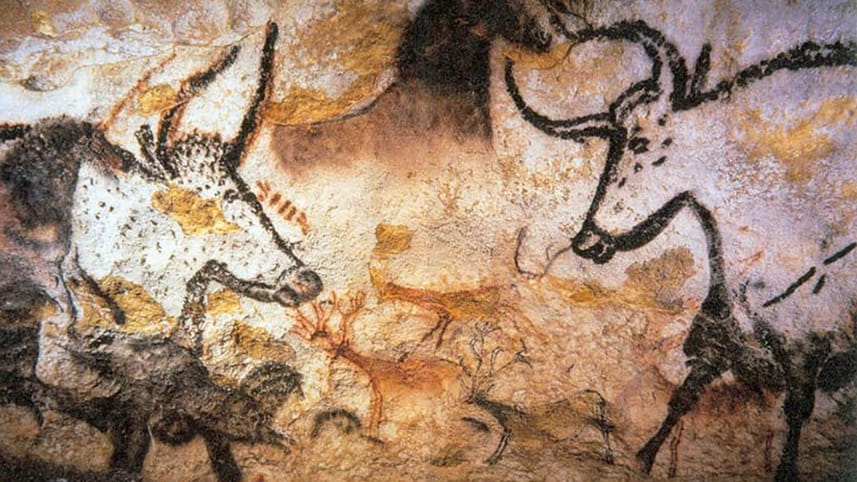The latest from John Green: The American man’s anthropocene reviewed

If you are familiar with John Green, you might already know of the immense popularity of the New York Times bestselling author, widely popular for his YA fiction, and often dismissed by critics for the same reason. The Anthropocene Reviewed (Penguin, 2021) is John Green's hiatus—away from the world of adolescent drama, it is a Bildungsroman that draws heavily on world affairs.
Green talks about a number of seemingly random topics connected to our epoch and he does so to pull a thread to or out of them. He narrates in the third person limited, and his tone of humble detachment in the backdrop of his characteristic optimism plays out well with the historical trivia that carries the anecdotes through. At the end of every chapter, he rates the topic (out of 5) based on its effect upon his perception of life. In one chapter about the Notes app on his iPhone, for instance, he shares real notes that he took in the past years and explains why he gave the app 3.5 stars. Green gives his first 5 stars to sunsets, which give him strength to be vulnerable.
It is refreshing to read Green's perspective—he has a rich inner world that can only pull you in. Here and there are lines that evoke that greatly elusive feeling of hope. In a chapter in which he talks about the Lascaux cave paintings, the mysterious paintings in the walls of a hidden, prehistoric cave in Southwest France, wisps of hope for the future seep out through the connections he draws. The fact that four regular teenage boys and their dog can discover a cave full of mystical drawings; that Pablo Picasso marvels at the crafting in the cave; that the French government makes a fake Lascaux cave just to protect the original from the harm inflicted by human presence—it all succeeds in demonstrating what combined effort can achieve. At a time when it seems like there is no magic left in the human purpose, witnessing such unity makes one feel that the restoration of lost wisdom is not impossible.

The author addresses the underlying essence of irony that persists in our time and history in the postscript of his book. "A species that has only ever found its way to more must now find its way to less", he writes, as a critical commentary on the work, remarking how it might be filled with too many quotes. He concludes by saying, "What a blessing to be Earth [sic] loving Earth".
Through this balmy outlook, Green effortlessly infuses insight into ordinary things. The quirky stylisation of his sentences has always succeeded in registering his readers' senses to the subtle enticement of his perspective. Therefore, when he talks about bullying, about how he found solace in Scratch n Sniff stickers (3.5 stars), about his friend Todd who helped him participate in the scholastic competition (4.5 stars) where he gave his first public speech despite trembling nerves, the song 'New Partner' (5 stars) which at multiple points of his life came up and remained as a recurring title track of sorts— he imparts us with a sense of extraordinary quality that is embedded in the ordinary pace of life. And although you might not agree with his ratings, his thoughts will definitely strike a chord with you.

As he spews out his thoughts, however, I couldn't shake off the feeling that the book's title is both ambitious and presumptuous. It claims to review the "anthropocene"— the story of all of humankind as it has impacted the planet—but he presents only the experiences of the American man, and not even of an ordinary one but that of a renowned best-selling author. The book does lay a good foundation for the experiences of a struggling human being in the comforts of sure shelter and food aplenty, but not much about the anthropocene that is in unrest.
I can imagine that if aliens were to go through our literature at a time when perhaps everything had gone wrong for the human species, this book would misrepresent the life of the average population.
Fahima Islam Lira is a contributor.



 For all latest news, follow The Daily Star's Google News channel.
For all latest news, follow The Daily Star's Google News channel.
Comments